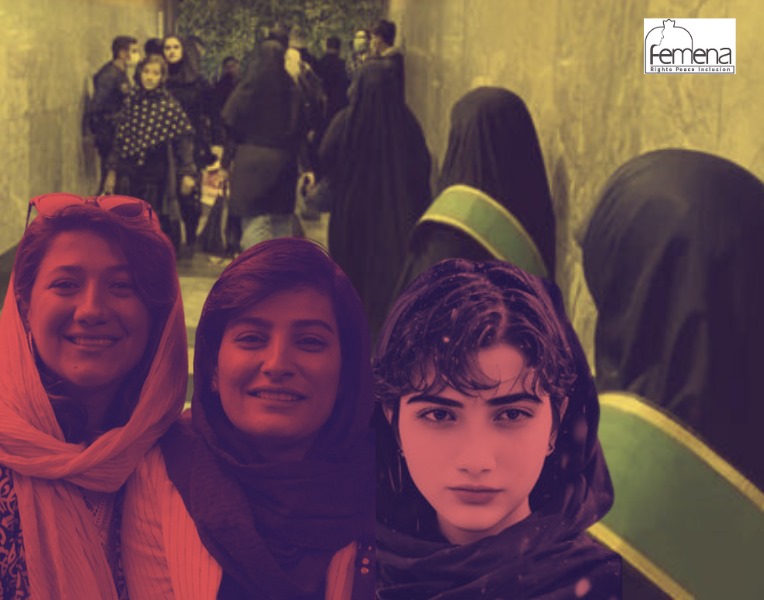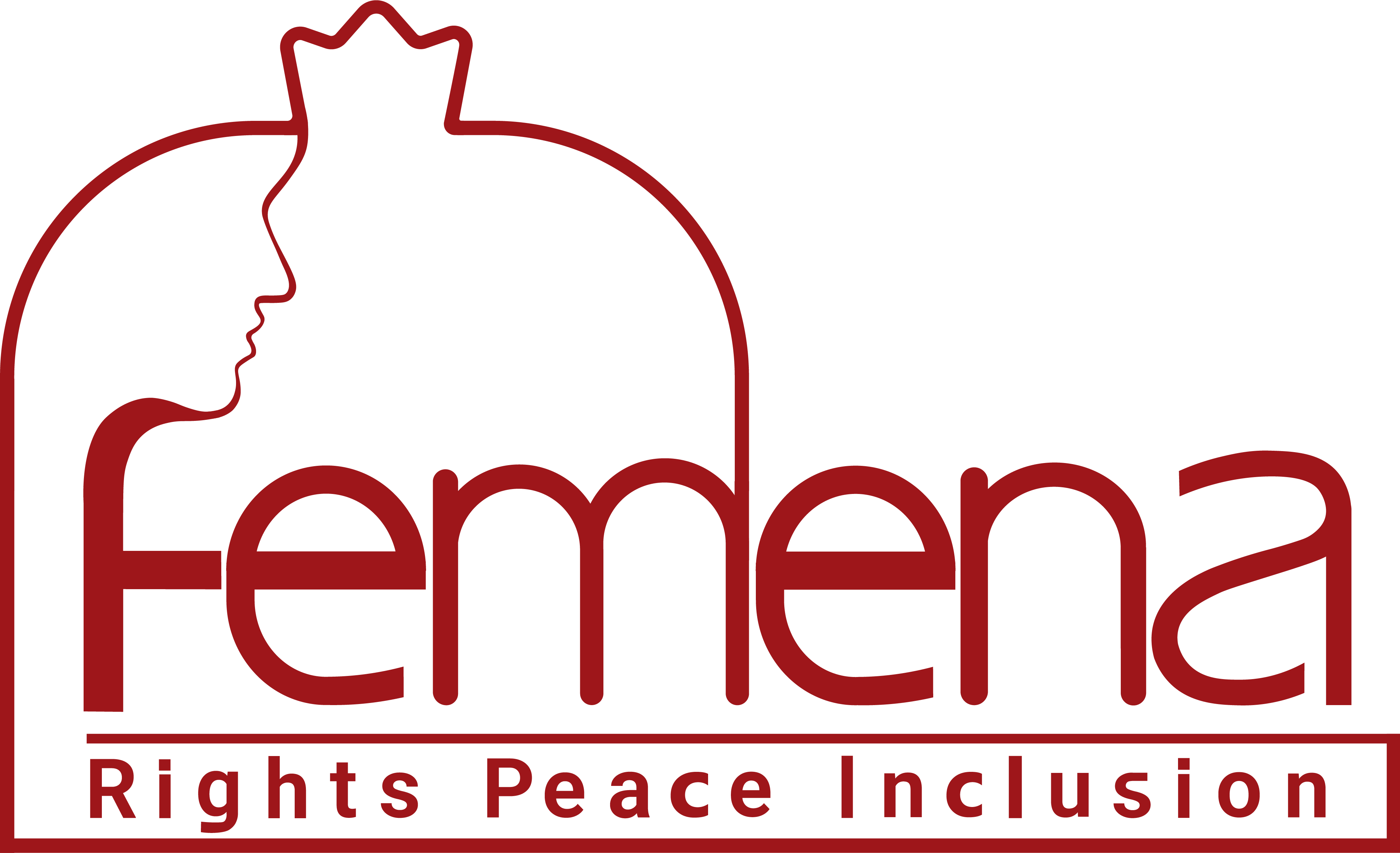
In the past two months, Iranian authorities intensified pressure on the families of Mahsa Jina Amini and other victims of last year’s uprising, preventing them from holding anniversary ceremonies. Simultaneously, mounting pressures are being exerted on rights defenders, civil society activists, and the families of those who lost their lives in protests. Additionally, enforcement efforts focused on ensuring women adhere to mandatory hijab in public spaces have significantly intensified. The case of Armita Geravand, 16, points to the serious and at times deadly consequences of the intensification of violence toward women with the aim of enforcing mandatory hijab. According to reports on October 1, 2023, Armita Geravand encountered a female hijab enforcer on the Tehran subway, leading to a verbal and physical altercation, which resulted in Armita suffering a concussion and being transferred to hospital where she tragically passed away after a 28 day coma.
The Suspicious Death of Armita Geravand and the Detention of 62 Persons at her Funeral
Iranian authorities have consistently implemented oppressive measures to police and enforce restrictive regulations on women and young girls who do not comply with hijab laws. These efforts have been reintroduced and intensified in recent months. The reintroduction of morality patrol officers in unmarked cars and undercover agents represents new tactics aimed at systematically harassing women and targeting their bodily autonomy in public spaces.
Armita Geravand, a 16-year-old teenager who tragically passed away in Tehran on October 28, 2023, after 28 days in a coma, serves as an example of the abuse and systematic violence that women and girls endure on a daily basis. Armita was assaulted by a hijab-enforcing agent at the metro station in Tehran on her way to school. State-run media reported that Armita sustained a head injury and concussion due to a drop in blood pressure, but eyewitness accounts contradict this narrative, citing a physical and violent confrontation with a hijab enforcer as the cause of the incident. After transfer to hospital, Armita was under the control of security agents in the intensive care unit of a military hospital in Tehran.
While Armita was fighting for her life in a coma, the authorities refused to inform the public about her condition and were not transparent about the reasons behind her hospitalization and coma. Maryam Lotfi, a journalist from Shargh Daily who visited Fajr hospital to report on Armita’s situation, was detained for several hours in an effort to prevent details surrounding the injury and subsequent death of Armita from being publicized.
During Armita Gerevand’s funeral, at least 62 women were reportedly arrested, with many promptly transferred to Evin and Gharchak prisons. The detainees included women’s rights activists, student activists, lawyers, and families of victims advocating for justice. Among those arrested was Nasrin Sotoudeh, a veteran human rights attorney. Sotoudeh, who was detained on October 29, was released on November 15. However, 14 of those detained at the funeral of Armita were swiftly tried in Tehran’s Revolutionary Court, on November 6, 2023, just a week after their detention.
Arrests, Persecution, and Intimidation Targeting Families of Deceased Protesters
Over the past year, families who lost their loved ones during the “Woman, Life, Freedom” uprisings have endured ongoing harassment and security pressures, with many of them facing arrests, interrogations, and unjust prosecution. According to reports and statistics from the Follow-up Committee of Iranian Detainees, since March 2023, at least 55 family members of deceased protesters have been detained. Among them is Mashallah Karami, the father of Mohammad Mehdi Karami, a protester who was executed following a sham trial. Mashallah Karami has been detained for over two months.
Mahsa Yazdani, the mother of Mohammad Javad Zahedi, one of the casualties of Iran’s nationwide protests in 2022, was sentenced to 13 years in prison by the revolutionary court in Sari. Meanwhile, those responsible for the killing of her 30-year-old son continue to enjoy impunity.
In many instances, authorities and security forces have prevented the families of killed protesters from peacefully gathering to commemorate anniversaries or birthdays at their loved one’s gravesites. Some anniversary ceremonies were postponed to alternate dates, while others, like the family of Kian Pirfalak, were allowed to hold ceremonies under highly securitized conditions.
Increased Arrests and Pressure on Civil Society Activists and Rights Defenders in Kurdistan, Rasht and Tehran
In recent weeks, Iranian authorities have intensified their targeting of civil society activists, employing various repression tactics such as mass arrests and issuance of long-term prison sentences. In Kurdistan, two Kurdish activists, Sakineh Parvane and Sarveh Pourmohammadi, received sentences of 7 and 10 years in prison, respectively. Meanwhile, uncertainty looms over the fate of two other women activists, Pakhshan Azizi and Varishe Moradi, who were arrested over three months ago. It remains unclear where they are being held and they have not been able to contact their families of lawyers. Rights groups have objected to the manner in which the two were arrested and have described these arrests as “enforced disappearances.”
In Rasht, on November 10, over ten women’s rights activists were arrested, including Nina Golestani, Rozita Rajaei, Anahita Hejazi, Nasim Tavafzadeh, and Helaleh Nateghe. Those arrested include writers and civil society activists. This marks the second instance of mass arrests in Gilan Province, following the mass arrest of 12 women human rights defenders in August 2023.
Furthermore, on November 8, Manijeh Moazen, a freelance journalist, translator, and woman human rights defender, was arrested in Tehran. The reason for her arrest is unclear. There are also reports indicating that some women protesters have been rearrested in recent days.
Iranian Journalists Niloofar Hamedi and Elahe Mohammadi Receive Lengthy Prison Sentences
Only one week prior to the official announcement of Armita Geravand’s death and after 13 months in temporary detention, the Tehran Revolutionary Court finally issued its verdict in the cases of Niloufar Hamedi and Elahe Mohammadi, sentencing them to thirteen and twelve years in prison, respectively. If confirmed in the appeals court, Nilofar will serve a mandatory applicable prison sentence of seven years, and Elahe will serve a mandatory applicable prison sentence of six years.
These two journalists, now prominent symbols of the “Woman, Life, Freedom” uprisings in Iran, were convicted of “collaborating with the hostile U.S. government, acting against national security and spreading propaganda against the state.” Niloufar and Elaheh were among the first journalists to cover the death of Mahsa Jina Amini and her funeral in Saqqez.
Dismissal and Expulsion of University Professors and Teachers
Shortly after the commencement of the new academic year in Iran, authorities initiated a new wave of academic repression targeting students, teachers, and university professors associated with or supportive of the “Woman Life Freedom” movement. In addition to barring hundreds of university students from pursuing studies due to their involvement in last year’s protests, numerous male and female university professors and school teachers have been dismissed from employment. According to the HamMihan newspaper, nearly 80 teachers were denied participation in annual professional assessments qualifying them for higher rankings and raises last year. Additionally, the Etemad newspaper reported that at least 110 university professors have been fired, dismissed from employment, forced to retire, or suspended since President Raisi began his term in August 2021. The academic repressions and crackdowns have escalated since the start of last year’s protests on college campuses and schools.
Systematic Repressions and Humiliation of Women in Public
Since the start of the “Woman, Life, Freedom” movement, many women have decided to choose their own dress and shed the mandatory hijab and headscarf. This evolved form of resistance, inspired by the “Woman, Life, Freedom” uprisings, has added another dimension to women’s struggle against entrenched patriarchy. However, following the government’s successful suppression of street protests through mass killings and arrests of protesters and activists, a new set of restrictions with increased intensity have been imposed on ordinary citizens.
Recent reports and images from Tehran depict the return of plainclothes agents in groups to metro stations and city centers, who yell at women, verbally abuse, insult and threaten them, while also filming those who appear in public without the mandatory hijab. Reports indicate that scores of women have faced daily arrests and trials, in which they have been convicted to pay fines. Additionally, vehicles have been impounded because their drivers or passengers have not complied with mandatory hijab. According to reports, over the past few months, hundreds of cafes, restaurants, and businesses in Iran have been shut down for providing services to unveiled women. These constant pressures and harassment disrupt the daily lives of Iranian citizens, especially women and instill in them a state of constant insecurity and fear. It is clear that these pressures aim to further constrict women’s spaces and limit their social presence. The heavy fines and relentless harassment imposed on women who transgress hijab regulations is aimed at forcing many women to adhere to mandatory hijab, and undermining the emancipatory achievements of the “Woman, Life, Freedom” movement for women.
Despite all these pressures, women persist in their resistance, appearing in public without a headscarf, risking arrest and harassment to maintain the momentum of the “Woman, Life, Freedom” uprisings. Even from prison, several women human rights defenders have joined the effort. In recent months, several imprisoned WHRDs including Sepideh Qalian, Hamida Zarai, Narges Mohammadi, and Nasrin Sotoudeh, have been barred from attending court sessions for refusing to wear a headscarf, impeding their ability to defend themselves. Others, like Narges Mohammadi, were denied medical services for the same reason.
*****
- Femena expresses its deep concern about the growing oppression of and the daily harassment of women with respect to imposition of mandatory hijab. These policies of fear have rendered public spaces unsafe and deadly for women.
- We are also greatly troubled about the issuance of heavy and exorbitant fines against women who choose to exercise the right over their own bodies by dressing as they wish.
- We call on the United Nations and especially the UN Fact Finding Mission to take note of these oppressive and violent tactics and hold Iranian authorities accountable for the systematic violence they impose on women in an effort to control their dress and bodies.
- Femena condemns the escalating pressures on civil society and especially women human rights defenders. We further condemn the continued and harsh punishments imposed against protesters and rights defenders, including dismissal from employment and university and heavy prison sentences.
- We call on the United Nations Human Rights Council and UN Special Procedures to pressure Iranian authorities to drop all charges against protesters and WHRDs in relation to the “Woman, Life, Freedom” uprisings and to end its harassment and detention of rights defenders, teachers, university students and professors, and family members of those killed during protests.
- We urge the UN to pressure Iranian authorities to release all rights defenders and civic activists, especially women human rights defenders, currently in prison for defending human rights or engaging in peaceful protests and other acts of dissent.
- Lastly, we call on international women and human rights groups and especially feminist groups in the region to continue to support and elevate the voices of Iranian women and WHRDs as they struggle for their rights and equality.

